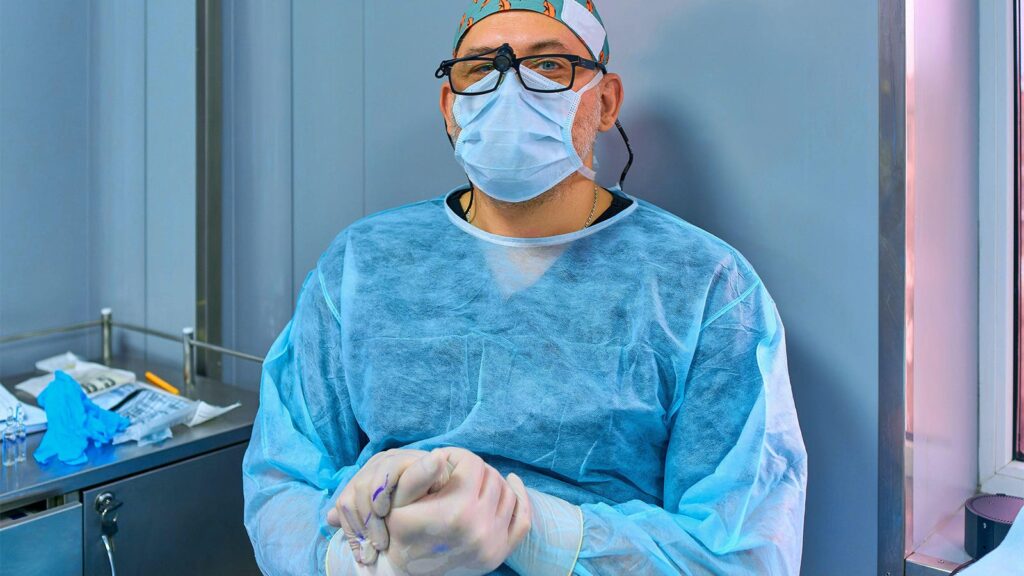Surgeons with higher physiological stress in the first 5 minutes of surgery had fewer major surgical complications, a post-hoc analysis of a prospective study found.
Increased sympathovagal balance — which was used as a measure of surgeon stress — at the beginning of surgery was significantly associated with reduced major surgical complications (adjusted OR 0.63, 95% CI 0.41-0.98, P=0.04), reported Jake Awtry, MD, of the department of general surgery at Brigham and Women’s Hospital in Boston, and colleagues in JAMA Surgery.
However, it wasn’t associated with reduced intensive care unit stay (adjusted OR 0.34, 95% CI 0.11-1.01, P=0.05) or mortality (adjusted OR 0.18, 95% CI 0.03-1.03, P=0.05).
“We found that, after controlling for patient factors and case complexity, increased surgeon stress was correlated with reduced patient morbidity,” Awtry told MedPage Today. “It serves as a reminder that, while we generally only think of stress as a negative experience, in moderation it can promote better performance.”
Sympathovagal balance was quantified with the low frequency to high frequency (LF:HF) ratio — the most commonly used physiological measure of stress — derived from heart rate variability data measured by chest monitors. Median surgeon LF:HF ratio in the first 5 minutes of surgery was 7.16 (IQR 4.52-10.72) before and 1.00 (IQR 0.71-1.32) after normalization; median heart rate was 88 (IQR 77-99) beats per minute.
“To our knowledge, this is the first study to clearly associate a measure of surgeon physiology with concrete patient outcomes” and “thereby provides another potential lever to pull in our efforts to provide the best care for patients,” Awtry said.
Previous research has focused on surgeons’ stress during intraoperative events rather than during the start of surgery when stress can be more readily modulated. While more research is needed before the findings can be applied clinically, Awtry said “in theory, these results could support a future paradigm where surgeons monitor and understand their own physiology, in ways analogous to elite athletes, as another way to improve their performance and promote better outcomes for patients.”
In an accompanying editorial, Steven Yule, PhD, of the University of Edinburgh in Scotland, and co-authors noted that testing only at the beginning of procedures made the study more feasible though “future studies could track physiological responses throughout surgical procedures to understand stress variations over time,” and added that looking at the stress of the whole team could be insightful as well.
They also pointed out that heart rate variability “often reflects cognitive load” and that spikes could “indicate heightened anticipation rather than distress caused by task demands,” which has been seen among international rugby medics right before games. The editorialists likened the stress and teamwork of surgery to the high-stakes, but very different, world of professional sports and suggested medicine could learn from the latter.
“Applying these performance-enhancing techniques from professional sports to operating rooms has the potential to unlock unprecedented gains in outcomes and foster a resilient surgical culture,” they wrote.
This study was a hypothesis-driven, post-hoc analysis of the pre-intervention phase of a prospective cohort study that took place from November 2020 through December 2021 and involved 14 surgical departments across seven specialties from four university hospitals in Lyon, France.
To adjust for interindividual variations in baseline sympathovagal balance, the LF:HF ratio for each case was normalized to the median LF:HF ratio across all of each surgeon’s cases.
In total, 793 procedures performed by 38 attending surgeons were analyzed. Median surgeon age was 46, 78.9% were male, and 57.9% were professors. Most surgeries were elective (90.2%) and performed under general anesthesia (82.7%).
There were major surgical complications in 144 patients (18.2%) and 30 (3.8%) had an extended intensive care unit stay; fourteen patients died (1.8%). Complications occurred more frequently in high-risk specialties among patients with more comorbidities.
Authors noted a few limitations, including that although LF:HF ratio is the most common measure of intraoperative stress, some have questioned its reliability. And while the measure has been well correlated with other measures of stress, this study did not test it against other concurrent measures of psychological stress. The study also didn’t account for surgeons’ intake of caffeine, alcohol, tobacco, or medications that impact heart rate variability. The surgical population was heterogeneous, making case-mix adjustment complex. Also, surgeons were mostly male and from a restricted geographic area, which limits generalizability.
Awtry said the team hopes to look at other surgeon and patient populations, more complex surgeries, assess at which point stress becomes deleterious to surgical performance, and evaluate individual surgeons’ response to stress.
Disclosures
The research was supported by a European Research Council Starting Grant and a grant from the French Ministry of Health Programme de Recherche sur la Performance du Système des Soins.
Awtry had no disclosures.
Co-authors reported receiving grants from the European Research Council Executive Agency and the French Ministry of Health.
Yule reported receiving research grants from the NIH, NASA, Melville Trust for Care and Cure of Cancer, Johnson & Johnson Foundation, Royal College of Surgeons of Edinburgh, and the U.S. Air Force.
Co-editorialists had no disclosures.
Primary Source
JAMA Surgery
Source Reference: Awtry J, et al “Association between surgeon stress and major surgical complications” JAMA Surg 2025; DOI: 10.1001/jamasurg.2024.6072.
Secondary Source
JAMA Surgery
Source Reference: Yule S, et al “Turning stress into success — surgery as professional sport” JAMA Surg 2025; DOI: 10.1001/jamasurg.2024.6041.
Please enable JavaScript to view the comments powered by Disqus.
Source link : https://www.medpagetoday.com/surgery/generalsurgery/113813
Author :
Publish date : 2025-01-16 21:13:37
Copyright for syndicated content belongs to the linked Source.
